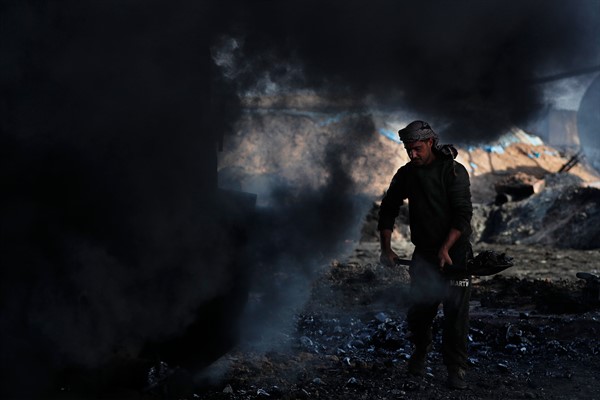After nearly a decade of conflict, the extensive damage inflicted on Syria’s environment is emerging as another devastating, if less visible, tragedy of its civil war. Polluted soil and contaminated water are exacerbating the already severe suffering of Syrian civilians, undermining their ability to meet their basic needs and jeopardizing the country’s postwar future.
While the war in Syria is far from over, the steep environmental toll will pose significant challenges to the country’s recovery when the fighting does eventually stop. Syrian and international experts are warning that the environmental impacts of war must be addressed with urgency—or the damage and ensuing humanitarian consequences will only become more dire.
“Identifying the impact of the environmental damage is important, as people don’t always realize that it continues after the cessation of armed conflict,” says Marwa Daoudy, an associate professor of international relations at Georgetown University, whose research focuses on environmental politics and security in Syria.

